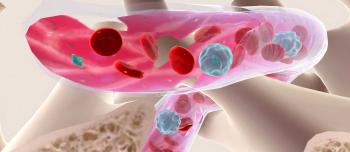Genentech recently reported that treatment with emicizumab (ACE910) lead to a “statically significant” reduction in bleeds when used prophylactically in patients with hemophilia 12 years of age or older with hemophilia A and inhibitors to factor VIII (FVIII). The investigational therapy is being evaluated via HAVEN 1, a multicenter phase III study designed to measure the therapy’s efficacy, safety and pharmacokinetics. HAVEN 1 included 109 patients with hemophilia A (12 years of age or older) with inhibitors to FVIII, who were previously treated with episodic or prophylactic bypassing agents.
While emicizumab was created by Tokyo-based Chugai Pharmaceutical Co., Ltd., it is being co-developed by Chugai, Roche and Genentech for the prophylactic treatment of people with FVIII deficiency, or hemophilia A, both with and without inhibitors. Unlike existing treatments, which require intravenous injections, emicizumab is administered subcutaneously via an injection just under the skin.
Emicizumab is a laboratory-engineered protein that works by performing a key function in the clotting cascade that is normally carried out by the FVIII protein, which is deficient in individuals with hemophilia A. The “cascade” is an intricate series of chemical and molecular reactions between clotting factors that lead to clot formation. In this case, emicizumab binds to and bridges two other key clotting proteins, activated factor IX and factor X, important components of the cascade normally performed by FVIII. In short, Emicizumab acts as a “FVIII–mimetic agent,” to ensure the creation of a viable blood clot.
Results showed a statistically significant reduction in the number of bleeds over time in people treated with emicizumab prophylaxis compared to those receiving no prophylactic treatment.
Emicizumab also performed well in an intra-patient comparison in people who had received prior bypassing agent prophylaxis treatment. According to Genentech, the most common adverse events with emicizumab were injection site reactions that are consistent with earlier studies.
“The development of inhibitors that render factor VIII replacement less effective, or ineffective, is one of the greatest challenges in the treatment of hemophilia A today, putting patients at high risk for life-threatening bleeds and repeated bleeds that may cause long-term joint damage,” said Sandra Horning, MD, chief medical officer and head of Global Product Development. “We are pleased to see that, in our first pivotal trial, emicizumab prophylaxis significantly reduced the number of bleeds over time in people in this difficult-to-treat setting. We look forward to working with health authorities to bring this treatment to the hemophilia community as soon as possible.”
Source: Genentech press release dated December 21, 2016





